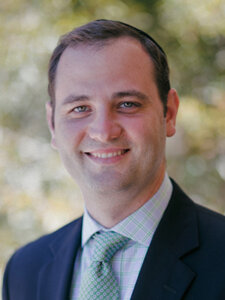Who gets to say what is kosher? A Long Island restaurant is caught in the crosshairs
Disputes over the business of kashrut have become a regular feature on the dockets of U.S. courts.

Graphic by Angelie Zaslavsky
It’s easy, in theory, to say that courts should stay out of religious matters. But what happens when money and faith collide? How should judges balance the government’s responsibility to regulate commercial conduct against the constitutional separation of church and state?
For over a century, one of the prime areas where these two core principles have repeatedly come into conflict is kosher certification. Disputes over the business of kashrut have become a regular feature on the dockets of U.S. courts, though most have been dismissed out of concern that adjudicating them could inappropriately make judges the arbiters of religious validity.
That’s why a Long Island judge recently dismissed a restaurant’s lawsuit claiming that it had been disparaged by a local kosher certification company, a decision that once again tested the legal system’s ability to balance two competing needs. On the one hand, the courts must protect the right of religious leaders to set religious standards for their communities. On the other, they must ensure that the commercial marketplace, even in niche aisles, remains free of malfeasance and monopoly.
The decision by the Nassau County Supreme Court came in a civil case filed last year by Chimichurri, a kosher Portuguese barbecue restaurant in Cedarhurst, against the Vaad Hakashrus of the Five Towns and Far Rockaway, the main kosher-certification company serving the Orthodox communities in those areas.
According to the complaint, Chimichurri ended its five-year relationship with the Vaad in July of 2020, choosing instead to use Mehadrin, a different kosher certification company. The restaurant claims the Vaad retaliated by circulating a letter falsely claiming that it was no longer kosher, which Chimichurri said led to $150,000 in lost revenue over a year. The court dismissed the complaint, saying that the First Amendment prohibited the court from getting involved in this type of religious dispute.
Chimichurri’s claim, legally, hinged on the word “falsely,” which raises the spector of what, exactly, is kosher — a red flag for the court.
The restaurant said the statements in the Vaad’s letter were false and untrue, and intended “to increase the Vaad’s monopoly power” by casting doubt on Mehadrin’s credentials as an arbiter of kashrut.
The Vaad, in turn, said it was simply trying to maintain the integrity of local kosher standards, not denigrate the restaurant.
The letter is not explicit about the Vaad’s grounds for its skepticism, but implies that Mehadrin is willing to apply religiously inadequate kosher standards in pursuit of profit.
Whose description of the facts is correct? The pursuit of that question could run afoul of what is often termed the “religious question doctrine,” which prohibits judges from resolving issues of religious practice.
There are many different — and, sometimes, competing — justifications for this doctrine. But maybe the most intuitive version is that when a court picks one religious view over another, it is using the coercive power of the state to determine which version of a faith is the true faith. And that is tantamount to establishing religion, in contravention of the First Amendment.
This is why most courts have, for the past 70 years, consistently refused to resolve kosher cases. Consider the 2012 lawsuit accusing Hebrew National of falsely advertising its meats as kosher. Multiple courts dismissed the case, with a Minnesota judge concluding that “It would be unholy, indeed, for this or any other court to substitute its judgment on this purely religious question.”
The kosher industry, since at least the beginning of the 20th century, has frequently been the site of significant allegations of fraud — and even intimidation and violence.
States have long attempted to regulate attempts to fraudulently pass off food as kosher under consumer-protection laws. But courts have not been sympathetic, arguing that determining whether fraud has taken place would be like favoring one definition of kosher over another, and thus providing an answer to a religious question in violation of the First Amendment.
The Long Island judge in the Chimichurri case followed this trend of interpreting the constitutional constraints on a court’s power to resolve disputes over kashrut. But the conclusion is also a reminder of some underlying challenges for the kosher marketplace.
Current constitutional doctrine thankfully ensures good-faith kosher certifiers and rabbinic leaders can, without fear of judicial reprisal, clearly express their views on religious standards within their communities. At the same time, it also means that courts will often lack the tools to root out actual fraud — that is, actual attempts to falsify the kosher standing of food.
Where businesses engage in that sort of fraud, they may very well be able to exploit this constitutional reality. And that ultimately means that it is up to the Jewish community to build the kinds of institutions that will both ensure the viability and protect the integrity of the kosher marketplace.
To contact the author, email [email protected]
















